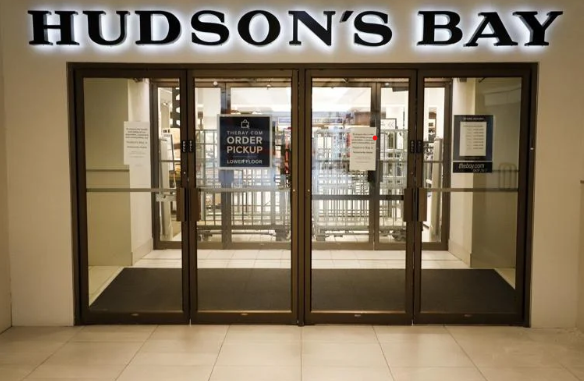
Shoppers are seen inside the Hudson’s Bay store in Toronto on March 13. According to documents released Monday night, the company will lay off over 8,300 workers by June 1. By then, all stores will be shut down and the clearance sales will be over. (Evan Mitsui/CBC)
Hudson’s Bay, one of Canada’s most iconic retail chains, is letting go of more than 8,300 employees by June 1, as it wraps up business at all its locations across the country.
Documents released on Monday confirm that nearly 89% of the company’s workforce will be laid off by the weekend. This mass layoff comes as Hudson’s Bay concludes its liquidation sales and shuts down all remaining stores.
This development was anticipated after earlier reports revealed that the company planned to halt its in-store operations starting June 1. Now, it's official: the layoffs are underway, and most employees will lose their jobs by the end of the week.
A few employees will remain temporarily to oversee the final clearance of furniture and to help shut down the last of the locations. But even their time with the company is limited. Hudson's Bay's distribution centres are scheduled to close on June 15, at which point another 899 workers will be laid off.
After that, only a skeleton staff of 118 people will stay on to guide the company through its financial wind-down under Canada’s Companies' Creditors Arrangement Act (CCAA), which allows firms to restructure during financial troubles.
While some employees may qualify for severance and unpaid wages, there’s no certainty they’ll receive these benefits. Eligibility falls under the Wage Earner Protection Program Act (WEPP), a government initiative meant to protect workers when companies go bankrupt or shut down while still owing staff money.
Still, not everyone will receive the same amount—or anything at all. The law firm assisting the laid-off workers says the amount owed to each employee will vary. More importantly, there's no guarantee anyone will see that money.
In a statement posted to the law firm’s website, it was noted that the company’s large secured debt could stand in the way of workers collecting their unpaid wages directly from Hudson’s Bay.
“Because of the scale of HBC’s debts, there’s no clear path for employees to recover what they’re owed,” the firm wrote.
The closure of Hudson’s Bay stores marks the end of a major chapter in Canada’s retail history. Once a cornerstone of Canadian shopping culture, the company has faced growing financial strain in recent years due to rising online competition and changing consumer habits.
For the thousands of employees who will soon be out of work, the future remains uncertain. Many are now relying on federal programs like WEPP to get them through a sudden and unexpected financial hit.















